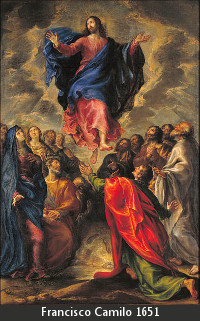The Preservation of the Jewish People: Diaspora
 (Read Part 1)
(Read Part 1)
Although many Bible students are familiar with the general developments of Jewish history until the destruction of Jerusalem in AD 70, few have any familiarity with their history between that fateful date and the twenty-first century. It is not a pretty story. Although a small remnant of Jews always continued to live in the land of their forefathers, the vast majority sojourned in the diaspora (literally the “scattering”), a technical term for those lands outside of the land of Israel. They were guests in foreign countries—“aliens” and “exiles” would be a more appropriate term for their plight. Their hosts, moreover, were far from anything deemed “hospitable.”
No matter where they wandered in the medieval world, the Jewish people never had citizenship open to them in any country. Not only were they often hated as a group, they were also often caught between warring factions and suffered the consequences. When the European Crusaders launched their expeditions in the eleventh through the thirteenth centuries to free the Holy Land from the Muslims, they slaughtered dozens of Jewish communities along the way. When the Black Death spread through Europe in 1348-1350, many blamed the Jews for poisoning wells and burned thousands, especially in Germany. Even the Pope, not always a friend to the Jews, opposed such baseless accusations, but the mob could not be dissuaded from their blind hatred.
Discussion
Easy-Believism, cheap grace, or true Repentance?
Some say that Charles Stanley believes repentance is a change of mind and not a change of lifestyle. However listening to him on podcast recently this is not what he believes and has stated clearly that those whom say a prayer but live in sin are not true Christians. He said the prayer does not save anyone as only the blood does that. I have heard Stanley in other podcasts state clearly that true believers have fruit. He also has stated that Biblical evangelism is telling people God loves them, but ALSO God judges sin, and sinners will spend eternity in Hell.
Discussion
Christianity, No Fable
[node:22019 collapsed body]

CHAPTER V: CHRISTIANITY, NO FABLE
BY REV. THOMAS WHITELAW, M. A., D. D., KILMARNOCK, SCOTLAND
I. The first mark of the truthfulness of Christianity is to be found in
Discussion
Is the Bible the only rule for faith and practice?
It used to be considered a Baptist Distinctive: The Bible is the only rule for faith and practice.
It seems from some recent discussions that this foundational principle has been thrown under the bus of Culture.
Is the Bible sufficient to guide Believers today?
Are there sufficient Scriptural statements, principles and precepts to judge culture, movements within Christianity, music, Christian Character, doctrine as well as doctrinal deviation?
Discussion
Our Ascended Lord

It’s been over 20 years since our church put on a “Living Scenes of Easter” play.
One challenge back then was to dramatically present the ascension scene. Rather than provide fodder for America’s Funniest Videos, we decided to handle things simply: we would create smoke using dry ice to simulate Jesus ascending into the clouds. It worked well.
Most of us are aware that forty days after his resurrection, Yeshua ascended into heaven. We would do well to reflect upon this ascension. The fullest ascension account is found in Acts 1:9-11.
And when he had said these things, as they were looking on, he was lifted up, and a cloud took him out of their sight. And while they were gazing into heaven as he went, behold, two men stood by them in white robes, and said, “Men of Galilee, why do you stand looking into heaven? This Jesus, who was taken up from you into heaven, will come in the same way as you saw him go into heaven. (ESV)
Final “goodbyes” are the most difficult, like bidding adieu to a dying parent or sibling. Those last few moments can be tough to process. The early believers had to experience that sort of grief—twice!
The Apostles and early believers had experienced the traumatic devastation of the crucifixion followed by the ecstatic exuberance of the resurrection. It had been an amazingly bipolar experience. After the high of the resurrection, the disciples now had to brace themselves for a different kind of loss. Jesus’ departure to heaven was bitter-sweet: He had to return to His Father’s throne and thus initiate the age of the Holy Spirit (John 16:7).
Jesus’ ascension is connected both to the resurrection and to his second coming. It is an extension of the gospel and a foundational belief that has important ramifications.
Discussion
The Preservation of the Jewish People, Part 1

Some time ago in my Sojourners class I spoke on “The Greatest Reason That the Bible is True” from Deut. 29-30, which deals with the promises of punishment for Israel’s disobedience (fulfilled) and the promises of blessing for them (beginning to be fulfilled in their return to the Land). One of the greatest evidences that the promises are true is that God has preserved the Jewish people through their trials. Here are some further thoughts on that subject—in three parts.
A visiting preacher opened his message with the following provocative statement, “Today I want to tell you how to destroy the Jewish people,” which was the title of the sermon in the Church Bulletin: “How to Destroy the Jewish People.” That rather inflammatory title had also appeared in the local newspaper that week as part of an advertisement for the special meetings the church was conducting with their guest. In a short time, the announced sermon title had resulted in no small commotion in the small town. So significant was the brouhaha that the local rabbi had taken notice and was actually sitting in a pew that morning! Needless to say, the atmosphere in the 11:00 a.m. service at was more than a little charged with emotional electricity.
The preacher then continued his opening remarks with the announcement of his text for the sermon. Has asked his hearers to listen to the words of Jer. 31:31-33. “Behold, the days come, says the LORD, that I will make a new covenant with the house of Israel, and with the house of Judah: Not according to the covenant that I made with their fathers in the day that I took them by the hand to bring them out of the land of Egypt; which my covenant they brake, although I was an husband unto them, saith the LORD: “But this shall be the covenant that I will make with the house of Israel; After those days, says the LORD, I will put my law in their inward parts, and write it in their hearts; and will be their God, and they shall be my people.”

Discussion